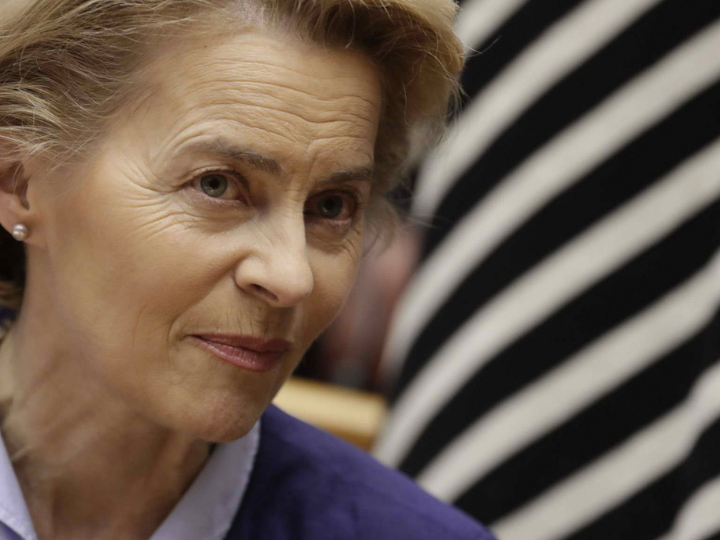World faces economic slowdown, spiraling conflicts in 2019
The world faces major crises in 2019 with escalation of military-political confrontation and trade wars, humanitarian tragedies and environmental disasters, according to a study by 30 top global experts

Its study pinpoints the top 10 global risks for Eurasia in 2019 as being: Escalation of the confrontation between China and the US; full-scale expansion of trade wars; the Great War in the Middle East; further degradation of relations between Russia and the West; “defrosting” of hotspots in Eurasia; growth of separatism and ethno-confessional conflicts and intensification of environmental and water challenges. Strengthening and evolution of cyber threats; the beginning of a new arms race and risk of major nuclear and technological disasters complete the list
By
Martin Banks*
The world faces major crises in 2019 with escalation of military-political confrontation and trade wars, humanitarian tragedies and environmental disasters, according to a study by 30 top global experts. The study, “Global Risks for Eurasia in 2019”, was presented as part of the fourth annual meeting of the Astana Club, an international discussion forum, on November 12 and 13.
Prepared by the team of experts of Institute of World Economics and Politics headed by its director Yerzhan Saltybayev, the study was based on the opinions expressed by more than 30 global experts and politicians, including several former heads of states and Nobel laureates. More than 1,000 experts from 60 countries also provided an input.
The study authors include Robert Kaplan, senior advisor at Eurasia group, Dan Smith, director of the Stockholm International Peace Research Institute (SIPRI), Mathew Burrows, director of the Atlantic Council's Strategic Foresight Initiative.
The Astana Club is a global issues dialogue platform and has partnerships with international think tanks.Club participants include scholars, businesspersons and former members of the U.S. Congress.
Its study pinpoints the top 10 global risks for Eurasia in 2019 as being: Escalation of the confrontation between China and the US; full-scale expansion of trade wars; the Great War in the Middle East; further degradation of relations between Russia and the West; “defrosting” of hotspots in Eurasia; growth of separatism and ethno-confessional conflicts and intensification of environmental and water challenges. Strengthening and evolution of cyber threats; the beginning of a new arms race and risk of major nuclear and technological disasters complete the list.
The majority of the experts who participated in the project warn of the world’s increasing vulnerability to global risks, as a result of fresh tension in the Middle East, crises over Iran and Ukraine, trouble brewing in the South China Sea, and sanctions against Russia. The growth of protectionism is another trend that will continue in 2019.
The two most serious risks are associated with two areas of confrontation between the US and China. The first is in the military-political environment – involving mutual distrust and growing competition for dominance in Asia. The US will strengthen its policy of containing China, strengthening the anti-Chinese consensus in the Asia-Pacific region. This, assert the experts, will provoke a response from China, which will seek to counteract the pressure.
The second area relates to the trade war between the two giants which started in mid-2018. Tariff restrictions are sure to be extended, resulting in a slowdown in both countries’ economies. The effect of protective measures “overflowing” to other markets may be seen as a result also. A slowdown in global trade and investment will be caused by trade restrictions around the world.
The consequences of the US withdrawal from a nuclear deal with Iran could trigger a large-scale war in the Middle East. In 2019, it says relations between Russia and the West will continue to deteriorate. Pressure on Moscow may be intensified by sanctions: the next targets may be the largest Russian banks, whose dollar assets may be frozen.
The “defrosting” of Eurasia's hotspots – the conflicts in eastern Ukraine and Nagorno-Karabakh and Afghanistan – could exacerbate relations between the great and regional powers.
There is a high risk of a fresh round of violence between Sunni and Shiite groups in the Middle East, and in the near future many thousands of refugees, especially Rohingya Muslims, are at risk of a humanitarian crisis.
The study predicts that geopolitical confrontation will grow into cyberwar, with power plants and grids, military-industrial complexes, and electronic networks coming under attack. Losses from the actions of cybercriminals are growing dynamically and nearing 1% of world GDP. A return to the arms race is another risk created by the critical decline in confidence among the great powers.
The findings were presented at the plenary session of the Astana Club, addressed by Kazakhstan President Nursultan Nazarbayev who proposed a number of measures to mitigate these risks, such as the establishment of a dialogue platform between the leading world powers (the US, China, Russia, and the European Union). He suggested using the Astana platform to conduct such negotiations.
He favours forming a collective security organization in Asia on the lines of the existing CICA (Conference on Interaction and Confidence Building Measures in Asia). This organization together with the OSCE (Organization for Security and Cooperation in Europe) could work out a security zone throughout the Eurasian subcontinent, he said. “It is expedient to hold a conference in Astana devoted to security in Eurasia. And this can be done on the basis of our Astana Club,” he suggested.
*a Brussels based independent journalist, expert on European and global politics. He is publishing regularly in European Business Review



 By: N. Peter Kramer
By: N. Peter Kramer
